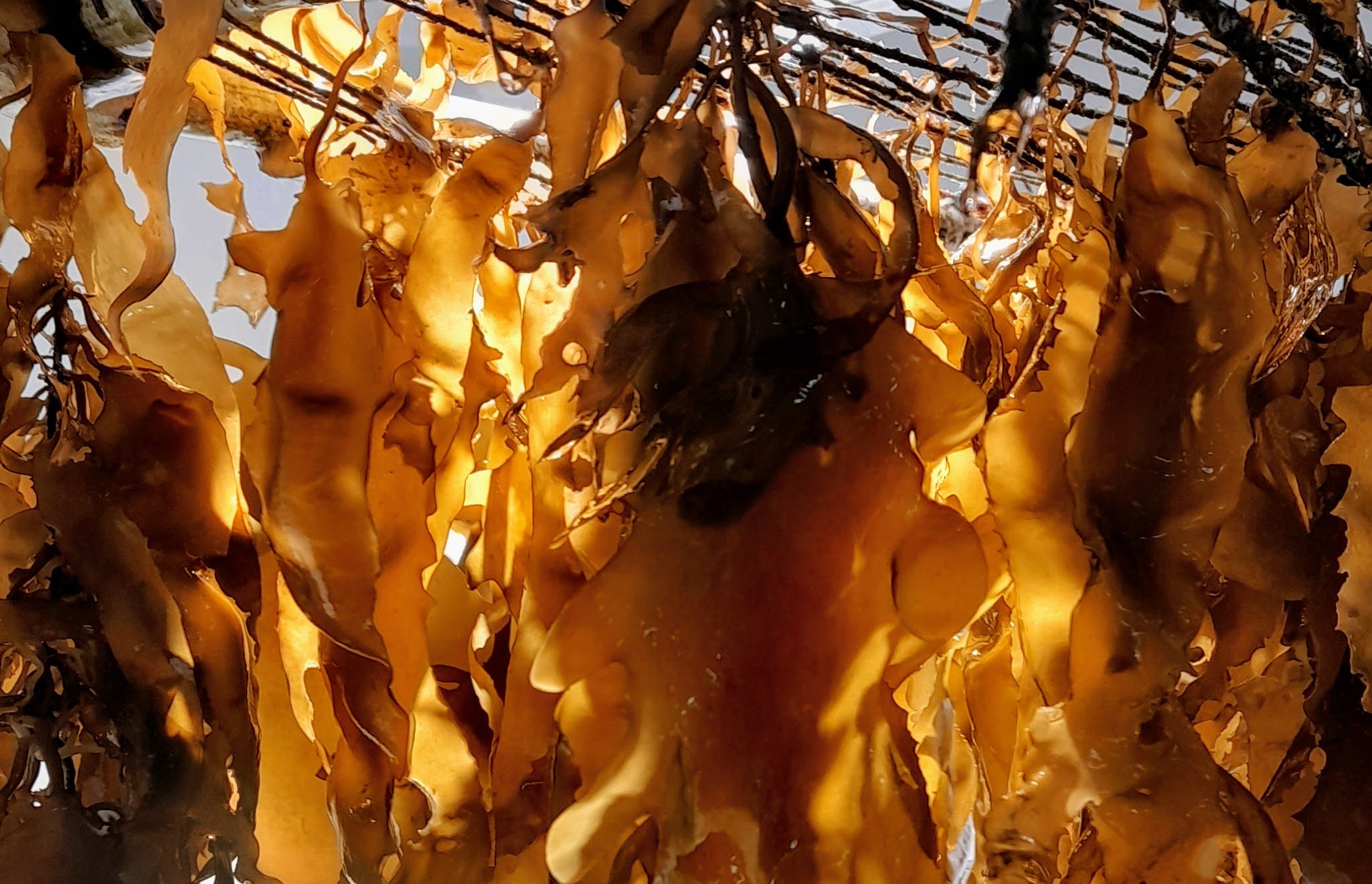
Seaweed's Potential for Aotearoa New Zealand
Seaweed farming has been identified by government and industry as having strong economic prospects for Aotearoa New Zealand, and as a tool to help combat climate change.
To date there has been limited interest from the established local aquaculture industry to use consented water space for farming seaweed due to regulatory hurdles, operational uncertainties and commercial risk. As a result, future sector growth is heavily constrained by the lack of a reliable and scalable supply chain for New Zealand seaweed.
A prosperous seaweed sector could provide meaningful economic, environmental, social and cultural benefits to local communities, along with broader impacts nationally.
Greenwave Aotearoa’s philosophy is not just finding a new way to grow seaweed, but focusing a lens on an environmental problem that we can help solve, while creating economic opportunity.
We are committed to unlocking the potential of a thriving seaweed sector. Our vision is scalable regenerative ocean farming, where seaweed cultivation addresses environmental challenges and fosters economic opportunities in our communities.
Our oceans hold vast potential for sustainable innovation, and seaweed is one of the most promising solutions. By responsibly cultivating and utilising seaweed, we can create a future that supports our needs while protecting the environment. Seaweed is more than a resource—it’s a pathway to a cleaner, greener world.
Rich in vitamins, minerals, and antioxidants, seaweed is valued as both a nourishing food and a powerful ingredient in health and skincare. Its unique nutritional profile makes it ideal for supporting wellness, and it has been incorporated into products aimed at enhancing overall health and vitality, all with a minimal environmental footprint.
The seaweed industry offers opportunities to strengthen coastal economies, creating jobs and new sources of income for communities by harnessing local marine resources. Through sustainable practices, seaweed farming can promote economic resilience in coastal areas, helping these communities thrive while preserving their natural surroundings.
Seaweed absorbs large amounts of carbon dioxide and other nutrients as it grows, making it a natural ally in the fight against climate change. By expanding seaweed cultivation, we can support carbon reduction efforts, promote cleaner oceans, and help address climate challenges through a truly renewable resource.
Seaweed stands out as a natural solution to many of today’s environmental challenges, offering a renewable resource that supports everything from food to eco-friendly products. As a fast-growing marine plant, seaweed provides a sustainable option that can help reduce reliance on land-based resources while serving as a foundation for a range of industries, including food, health, and environmental solutions.
Key Benefits of Seaweed
Join our mailing list
Join us as we grow seaweed to be a catalyst for economic, environmental,
social, and cultural benefits to local communities nationwide.

Resources and further reading
International Seaweed Symposium presentations
The 24th International Seaweed Symposium held in Tasmania in February 2023 drew attendees from around the world, including several of the Greenwave Aotearoa team who championed New Zealand’s growing seaweed industry. Associate Professor Marie Magnusson and Dr Rebecca Lawton from the University of Waikato, Dr Nigel Bradly and Rebecca Barclay from EnviroStrat and Clare Bradley from AgriSea all contributed to the conversation with presentations and keynote addresses during the Symposium.
Seaweed Sector Framework
In October 2022, Sustainable Seas National Science Challenge released the Seaweed Sector Framework. This co-developed roadmap shows how Aotearoa New Zealand could grow its rimurimu | seaweed sector in a way that provides meaningful environmental, social and cultural benefits as well as economic to local communities and nationally. Greenwave Aotearoa team members EnviroStrat co-developed the Framework and Premium Seas was a case study to ensure the Framework was fit for purpose and of value to future users.
Successful initiation of sorus formation and viable zoospores in Ecklonia radiata on isolated lateral fronds under hatchery conditions
A key advancement in our work programme has been the development of methods to successfully maintain broodstock in tanks and induce formation of reproductive tissue on demand. This is important as it removes reliance on sourcing reproductive tissue from wild Ecklonia radiata, which is only present at certain times of the year. You can read more about this work in the University of Waikato team’s paper published in December 2022.
Why seaweed?
Seaweed makes up almost a third of global aquaculture production volume.
The global value of seaweed aquaculture in 2019 was estimated at US$14 billion with a growth rate of 7% per year on average over the last decade.
Seaweed aquaculture production volume has tripled over the last 20 years and now accounts for 97% of total global production – over 34 million tonnes was aquaculture and just over 1 million tonnes was wild harvest in 2019.
Seaweed has a number of product applications including biostimulants, feed supplements, nutraceuticals and hydrogels.















